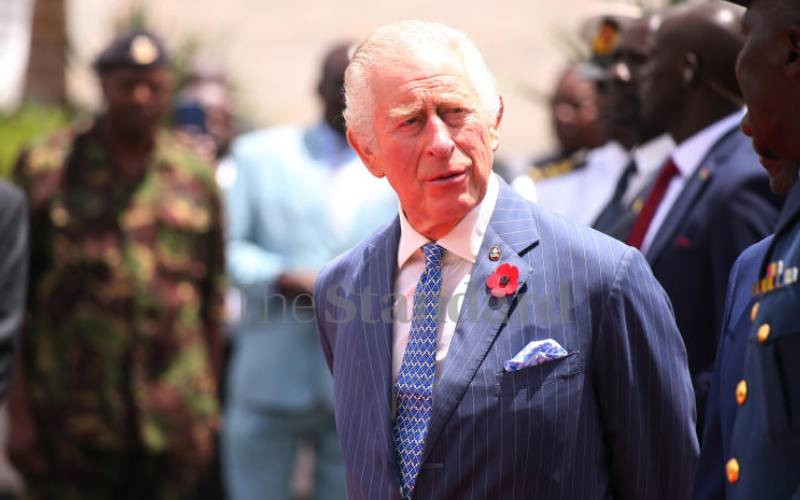×
The Standard e-Paper
Fearless, Trusted News

Britain's King Charles III was confronted by his nation's dark colonial history on the first of his four-day State visit, a tour rich in pomp as it is symbolic.
King Charles and Queen Camilla were yesterday morning welcomed at the State House by President William Ruto and First Lady Rachel Ruto. Their arrival late Monday was as low-key as their light convoy.